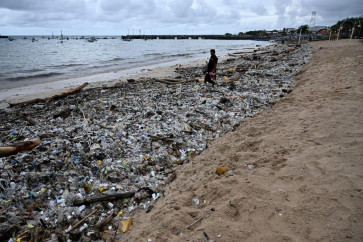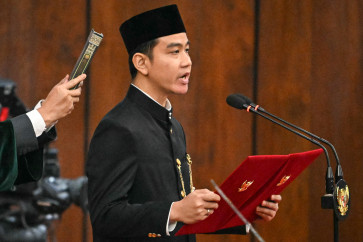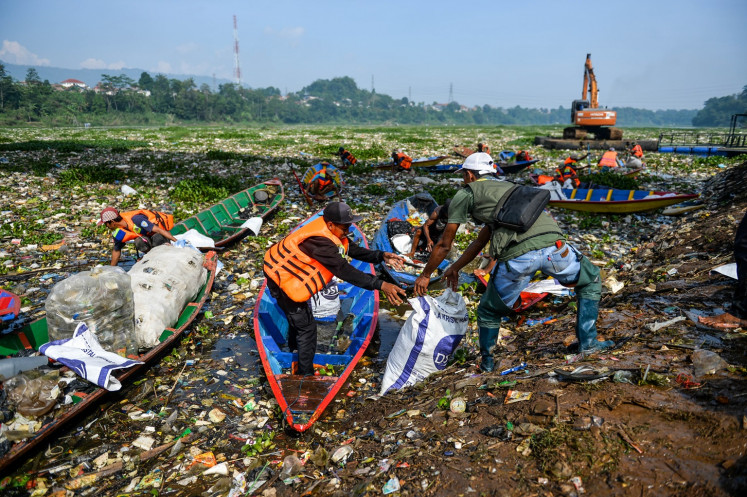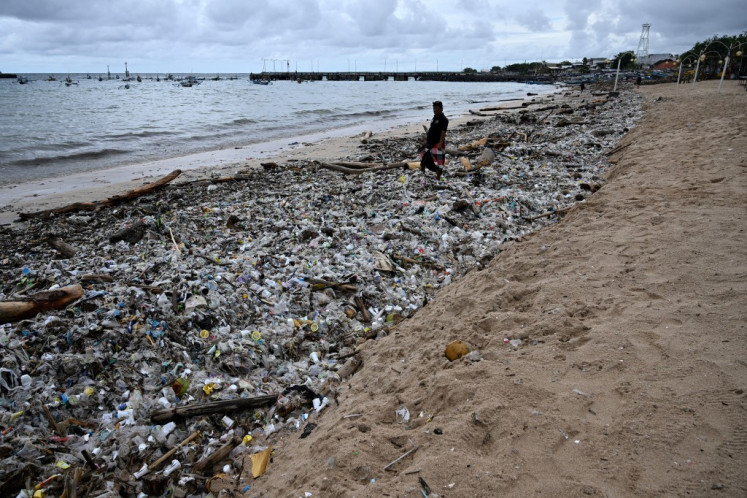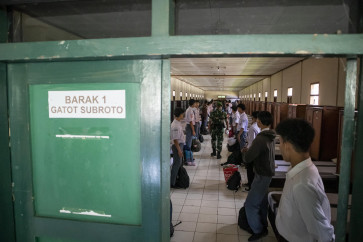The erosion of civil supremacy: A quiet shift in Indonesia’s statecraft
We are witnessing the normalization of both emergency governance and militarization, which are fundamentally at odds with democratic accountability and meritocracy.
Change text size
Gift Premium Articles
to Anyone
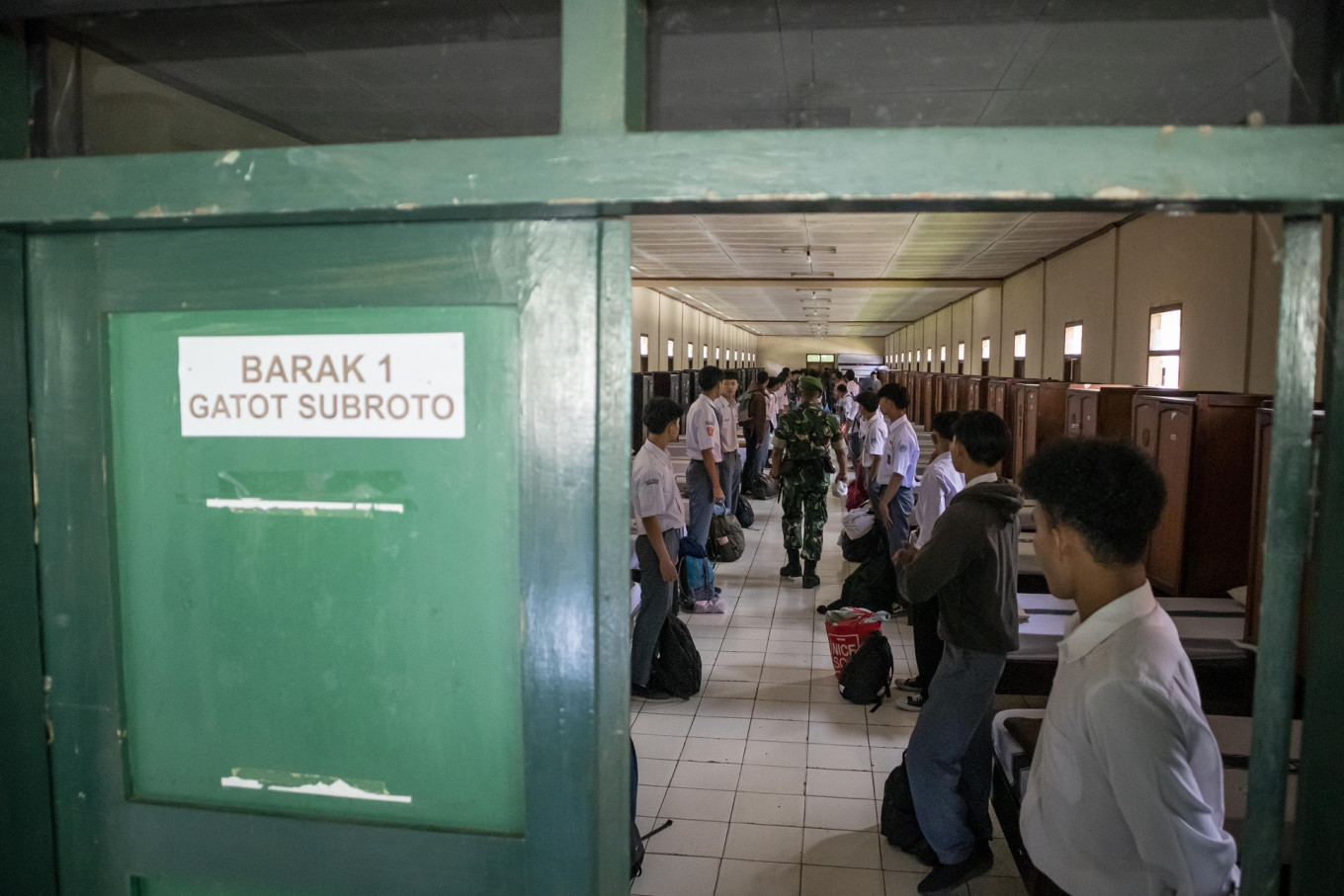 Students stand at the ready in a barracks on May 5 while undergoing character and discipline training at a military education center in West Bandung regency, West Java. At the center, hundreds of students from various regions across West Java who have been involved in street brawls and motorbike gangs, or who are addicted to online games, undergo intensive training led by Indonesian Military (TNI) personnel for at least 14 days. (Antara/Abdan Syakura)
Students stand at the ready in a barracks on May 5 while undergoing character and discipline training at a military education center in West Bandung regency, West Java. At the center, hundreds of students from various regions across West Java who have been involved in street brawls and motorbike gangs, or who are addicted to online games, undergo intensive training led by Indonesian Military (TNI) personnel for at least 14 days. (Antara/Abdan Syakura)
I
n recent months, Indonesia has seen a subtle but significant shift in how state authority is exercised and by whom. This trend, characterized by the appointment of active and retired military officers to strategic civilian roles, the deployment of troops in non-combat domestic functions and proposals for military-style discipline in public education, points to a clear pattern: The normalization of militarization as a mode of governance.
This transformation is not driven by a single dramatic event but by a series of decisions that collectively blur the lines between civilian and military spheres. While officials often frame these actions as pragmatic responses to national challenges, their deeper implications warrant urgent attention.
This trend highlights a growing inconsistency between the government's stated commitment to democratic principles, such as civilian supremacy, legal meritocracy and institutional professionalism. These inconsistencies signal the normalization of both emergency governance and militarization, which are fundamentally at odds with democratic accountability and meritocracy.
This discrepancy is particularly evident in recent policy moves. Consider, for example, West Java Governor Dedi Mulyadi's initiative to send "delinquent youth" to a semi-military boot camp within Indonesian Military (TNI) facilities. This exemplifies a growing public acceptance of coercive approaches, where discipline replaces civic education, bodily control supersedes critical thinking and hierarchy outweighs empathy. This goes beyond the military's visible presence in public life; it reflects a deeper erosion of trust in civilian institutions as vital spaces for shaping society.
Instead of revitalizing schools, youth mentoring programs, families and grassroots communities as forums for civic dialogue and democratic cultivation, we are witnessing a transfer of responsibility to institutions designed for command, rather than nurturing; institutions that prioritize order over growth and control over service.
This is where we must reclaim our civic imagination. Why not restore schools as civic institutions, teachers as moral anchors and young people as active citizens; future leaders forged not in fear, but in freedom? It is time to return to a tradition of leadership grounded in grand ideas and democratic values, promoting leadership that enlightens the public sphere rather than silencing it.
Another troubling development is the deployment of TNI troops to guard prosecutor's offices nationwide. According to TNI Commander Gen. Agus Subiyanto's instruction dated May 6, active combat units are being mobilized to secure provincial and district attorneys offices as an interpretation of Article 47 of the revised TNI Law.


